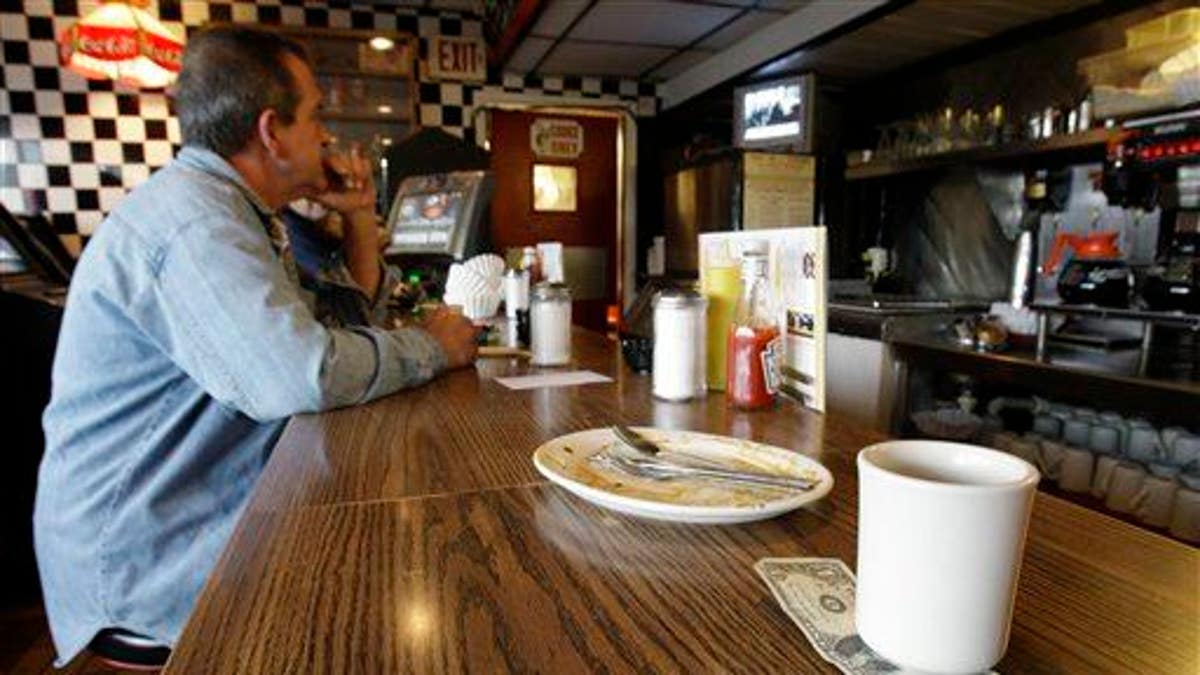
In this June 19, 2008 file photo, a tip is left by a customer at a restaurant in St. Clair Shores, Mich. (AP Photo/Paul Sancya, file)
In yet another blow to our sense of self-control (to say nothing of our waistlines), it now appears that overweight waiters may inspire people to eat and drink more. That’s the latest finding from Cornell University’s Food and Brand Lab, which over the years has produced an array of discoveries about the unconscious factors that influence eating.
Lab Director Brian Wansink has gained renown for showing that he can manipulate how much people eat by varying lighting, music, the colors and arrangement of jelly beans and the size of one’s fellow diners. In one famous experiment, Dr. Wansink and colleagues fed people soup. But some bowls were rigged up to subtly refill themselves from a large unseen reservoir. “Despite consuming 73 percent more,” the scientists wrote of the subjects with the refilling bowls, “they did not believe they had consumed more, nor did they perceive themselves as more sated than those eating from normal bowls.”
In a new study, conducted with Tim Döring of Friedrich Schiller University in Germany, the researchers wanted to find out whether a restaurant server’s body-mass index (a measure of weight in relation to height) influenced what diners chose to consume. Trained students working on the research team observed 497 interactions between diners and servers in 60 casual American full-service restaurants, such as Applebee’s. In each case the observers estimated whether the server and the diners had a BMI of more or less than 25, the standard cutoff for being overweight. They also tracked what diners ordered. The result? “If you have a heavy server,” says Mr. Döring, “you order more.”
Diners with servers over the cutoff were four times likelier to order dessert and ordered 17 percent more alcoholic beverages. The disparity in ordering was particularly pronounced when diners below the BMI threshold of 25 had a server who was at or over the threshold. Or as Mr. Döring put it, “A heavy waiter or waitress seems to have an even bigger influence on the skinniest diners.”
What accounts for this finding? The scientists can only speculate, but Mr. Döring sums up his explanation in a word: “liberation.” In his view, diners with a heavier server felt freer to order more fattening items.
The scientists write that their findings could be used in cases of alleged workplace weight discrimination, presumably by showing that overweight servers aren’t automatically a liability since they may actually increase sales. But Mr. Döring said that it wouldn’t behoove restaurateurs to start hiring heavier servers based on this one study, which doesn’t try to measure the effect of body weight on server proficiency or repeat business.







































